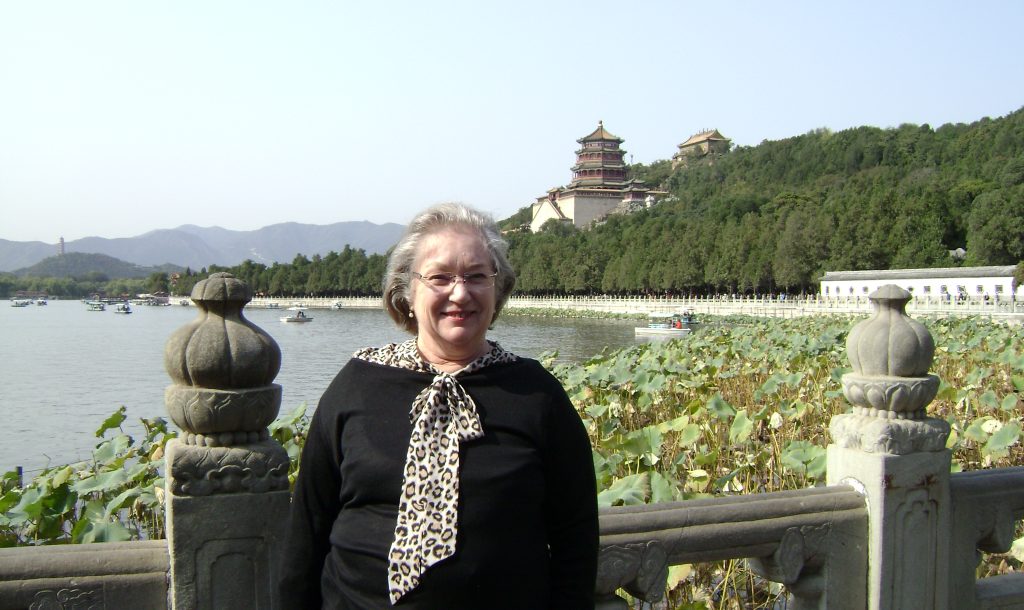One of the Australian National University’s eminent academics has passed away. Originally completing her undergraduate degree at the ANU, Helen James finished her career as Honorary Professor in the Department of Anthropology, School of Culture, History and Language, College of Asia Pacific. She had a varied academic career around and between this, including studying for her Masters and PhD degrees at the University of Pittsburgh, PA.
Helen was first and foremost a specialist in mainland Southeast Asia. She published widely on Thailand and Myanmar in particular, from colonial history to disaster risk management. Helen always had a keen eye on keeping her research relevant and was skilled at working in collaboration with government. In her later career, Helen advocated a mixed-methods approach, supervising and producing research of great importance to policy makers but the like of which government departments were rare to fund themselves.
Her final book-length publication was editing the volume Population, Development, and the Environment: Challenges to Achieving the Sustainable Development Goals in the Asia Pacific. At the book launch in Canberra, Helen remarked how much she loved the ANU, and how the institution had always found a place for her – even during the occasional turmoil caused by the mergers and acquisitions of and between its various social science departments and colleges.
Preceding that important book, Helen’s publications had followed her interests in language, history, civil society, population, and disasters. She wrote a history of trade in ancient Thailand, a Thai language reference grammar, studies on community resilience across Southeast Asia and edited several volumes on civil society issues. In total, Helen’s publications reached the formidable count of 131 total items – including 11 books.
Helen maintained a special focus on Myanmar. Helen’s belief was that by concentrating on Myanmar’s education, health and environment sectors, and the institutions formulating and delivering policy in these fields, scholars could provide knowledge assisting the international community to strengthen Myanmar’s civil society.
In this way Helen was part of a movement of scholars engaging with the military government in Myanmar and encouraging institutional developments which could provide more opportunities for the younger generation, promote economic development and poverty alleviation and assist the conditions from which democracy could grow.
Once Yangon University officially re-opened for classes in 2013, Helen furthered her already strong relationships with academics there, particularly in the Geography Department. Helen organised one of the first international conferences at the re-opened campus and facilitated many Myanmar academics’ first scholarly publications. Through her conference work, she also provided opportunities for dozens of international scholars to visit Myanmar for the first time and present their own research.
Helen founded a long-running program that brought a yearly cohort of Yangon University academics and professional staff from Myanmar to the ANU for academic training. At last count, Helen had been instrumental in orchestrating this training for over one-hundred individuals, many of whom had never left their home country before. This is just another example of how Helen applied her practical skills to provide amazing opportunities for early career academics.
Dr. Thant Thaw Kaung, son of Sithu Thant Thaw Kaung, eminent Burmese historian and librarian, remembers Helen as “a warm, entertaining family friend who knew my family for decades and always tried to help others. I remember Helen well when she was researching the consequences of Cyclone Nargis in 2008. She was enthusiastic, professional, and never got tired of going out to into remote rural areas. Her passing is a great loss for the academic world in Myanmar and the anthropological field. We are sure she rests in peace”.
Helen supervised many PhD students over her career, including a large contingent of international students from Southeast Asia. She especially enjoyed assisting students from Southeast Asia to realise their dreams of completing further studies in Australia and was a kind and methodical supervisor.
One of her previous students, Dr Kien Van Nguyen, remembers Helen as “one of the best PhD supervisors and early career research promoters. She was a natural leader in the field of risks and disasters. She devoted so much energy to supporting her students from different cultural backgrounds. Professor Helen James has now died peacefully but her scientific contribution will remain alive for years to come.”
At the time of her passing, Helen was supervising five PhD students. As her final students, they would like to finish this memorial piece by remembering Helen as “an open and loyal friend, inspiring woman and incredible PhD supervisor. Her kindness, generosity and support was so impressive. Without her intellectual guidance our research projects would have been much more difficult, if not impossible. Helen modelled what it is to be a consummate academic and an exemplary person, and it is our hope that her legacy will be carried on by those she mentored.”
Helen, you leave behind a husband, six children, twelve grandchildren and an enormous scholarly legacy of faith, engagement, generosity, strength and humility.
Rest in peace.
 Facebook
Facebook  Twitter
Twitter  Soundcloud
Soundcloud  Youtube
Youtube  Rss
Rss 